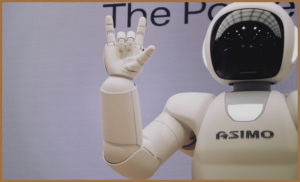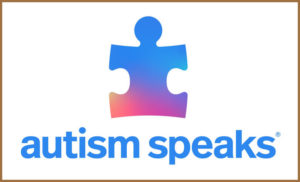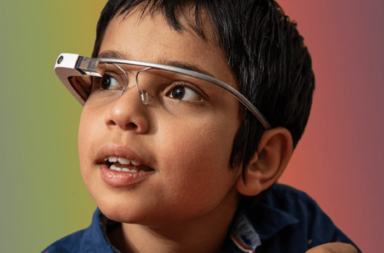Ignoring the announcement (and later retraction) that The Simpsons would be missing on the UK’s version of Disney+, February was a pretty fantastic month. To be fair though, this was always going to be the case after a new Tyrannosaur dubbed the ‘Reaper of Death’ was discovered back on the 10th – but that’s neither here nor there.
Of course, not one to be outdone by the larger world around us, the autistic community also put in a fine effort over the last few weeks and, while nothing directly concerning those on the spectrum was quite as cool as that awesomely named new T-Rex, what follows are several highlights which are certainly a close second, third, forth, fifth and sixth.
[As always, links to the full stories can be accessed by clicking on the red titles and the bold headings.]
Honourable Mentions:

Featuring action-packed announcements and dramatic discoveries, February’s noteworthy news is impossible to encompass with 5 headlines alone. So, before we begin, let’s look at the news which just lost out with a list of the Honourable Mentions.
- Panorama airs episode on autistic woman failed by the NHS
- Greta Thunberg’s Mum spoke about autism
- Rumours that bleach will cure autism make an unwelcome return
- Autism Professional Awards take place
- Trump cuts budget for valuable science agencies
- A study finds that of 1,000 children in the UK with intellectual disabilities, 62 percent are boys, and 46 percent also have autism
- Emergency Responders in Michigan have equipped their ambulances with autism sensory kits
- A school in the Indiana district is using a robot to help teach students with autism
The Top 5 Autism News Pieces for February 2020:
5. New Guidelines for Autistic People with Insomnia

80% of autistic people experience difficulty getting to and staying asleep. It’s a figure which many researchers have aimed to reduce in recent years and now, with the publication of a new autistic insomnia guide (from the American Academy of Neurology), we know a little bit more about how they plan to do so.
In short, the newly proposed method begins with looking at external circumstances, such as living arrangements and medication, before being prescribed melatonin and ultimately sleeping aids, like weighted blankets, if the sleepless nights persist – and, although I’m not normally one to toot my own horn, it’s fairly similar to the methods I recommended here.
Of course, we all know the importance of getting a good night’s sleep (especially when low rates of shut eye have also been proven to make some of the more difficult autism quirks even more challenging). So, it’s great (and somewhat ironic) to see that many autism researchers are working restlessly to understand and resolve these problems!
4. 20% of U.S. Caregivers Are in Bad Health

In a report from a February issue of the cheerfully titled Morbidity and Mortality Weekly, this month it was found that, out of the 17.7million US citizens who voluntarily look after someone, 1 in 5 will be experiencing factors of poor health including:
- Physical and emotional strain
- A high rate of depression
- Lower quality of life
This is a troubling statistic, as it means that those who are acting most selflessly in life are often the ones losing out and, subsequently, this has been proven to have a knock-on effect on the recipient of their care.
Of course, not every individual out of the 441,456 who were interviewed were looking after someone with autism (although I would love to see a more precise breakdown of this in the future). However, it does demonstrate that, whether you have an older neighbour, a neurodivergent sibling or a partner with an addiction, it can’t be stressed enough how important it is to practice self-care.
Rightfully, the report closes by calling for more federal programmes to support caregivers across the states immediately and, while you may call me optimistic, I have a sneaky suspicion that we may not have to wait too long for more news on this, thanks to the upcoming elections.
3. More Research Needed for Elderly Autists

For the longest time, autism was not only seen as a boy’s club, but also a young man’s game; where if you were female, darker-skinned or thinking about retirement, the autism research community probably wasn’t thinking about you. However, while this has changed in recent years, a new journal this month found that, in the older demographic, this isn’t changing fast enough.
As the population begins to age, this presents a worrying landscape for ageing autists who are seeing their presence continually ignored and are being unsupported (not to mention the many older undiagnosed autists for whom the diagnostic tools either aren’t up to scratch or are entirely missing). So, while the report itself doesn’t offer a solution, it does highlight the need for one.
To some extent, it may seem like this entry, which praises the research, encouraging more research, is somewhat redundant. However, I have included its entry today to demonstrate that this support is certainly in the works.
2. Autism Speaks Rebrands

Oh, Autism Speaks, how I would love to discuss you in an article one day, where I praise you for championing the rights of autistic people (and not merely appearing to profit from our families, with total disregard for how we are perceived). Nevertheless, after you failed to rebrand yourself this month, it would seem that today is not that day.
Yes, this is the news that the controversial autism charity, Autism Speaks, have finally rebranded this month (in association with their 15th anniversary). But, while many had been waiting a long time for this day, the change has not exactly met expectations – as the new Autism Speaks appears to be limited to a change in their logo and not much else.
This lacklustre response could have been different if a statement had also been issued: in which the charity acknowledged that, previously pocketed donations, would be fed back into the community, to protect and help autistic people excel. Instead, here we are with a half-hearted logo adjustment which, from the endless advertisements on the AutismSpeaks site, seems to only serve the purpose of selling new T-Shirts.
1. Health Secretary Fails to Action Autism Support

After a slew of reports that care homes in the UK were humiliating and physically abusing residents, it was announced in 2012 that a swift operation would take place to reform facilities and rescue the patients who had suffered. Flash forward 8 years and not much has changed since these events, resulting in the Equality and Human Rights Commission’s announcment to take legal action against the UK’s Health Secretary: Matt Hancock.
As you can imagine, this is big news, which aims to rectify years of abuse within some of the UK care home systems and, while certainly not the most positive note to end on, the ruling that the Department of Health and Social Care must now outline a timetable of reformation (lest further action be taken) is a sign that we are sailing towards a happily ever after.
Despite this, as the deadline for this outline was a few days ago and we have still heard nothing, it seems we are not quite in the clear yet – meaning you can probably expect that this already big news is about to get bigger in the months to come.
Carry on the Conversation:
Well, that was a bit of a bleak ending, so why not turn things around by sharing a highlight/achievement of yours from February in the comments section below. Alternativly, if you would like to read something more cheerful, why not check out this fun article on how Winnie the Pooh may or may not have been created to raise awareness of autism?
As always, I can also be found on Twitter @AutismRevised and via my email: AutisticandUnapologetic@gmail.com.
If you like what you have seen on the site today, then show your support by liking the Autistic & Unapologetic Facebook page. Also, don’t forget to sign up to the Autistic & Unapologetic newsletter (found on the sidebar on laptops and underneath if you are reading this via mobile) where I share weekly updates as well as a fascinating fact I have found throughout the week.
Thank you for reading and I will see you next week for more thoughts from across the spectrum.


